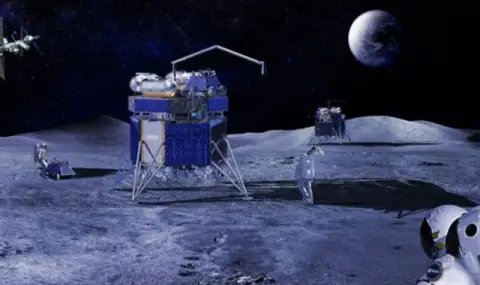Europe intends to actively participate in the exploration of the Moon, both together with the USA under the Artemis program, and independently, which will require regular delivery of various cargo to the surface of the satellite. The European Space Agency does not have such modules and therefore is starting a program to develop them. Today, ESA signed a $ 900 million contract with Thales Alenia Space to develop the Argonaut lunar cargo module.
In the United States, SpaceX and Blue Origin are developing lunar cargo landing modules under contract with NASA. The modules are planned to deliver up to 12 tons of payload to the surface of the Moon at a time. ESA's requirements for future Argonaut modules are much more modest - only up to 2 tons of payload, but the cargo can be quite diverse: from supplies for the inhabitants of the lunar base to scientific equipment and navigation, communication and energy infrastructure.
The tasks assigned to the lunar landing module require its frequent sending to the Moon. The modules will operate as automatic reconnaissance stations, which is especially important for the development of the satellite's south pole, as platforms for extraterrestrial observatories with telescopes on board, as nodes for communication and navigation networks, as means of generating and storing energy, and as supply trucks to provide life support for lunar missions with the participation of astronauts.
The Argonaut module is planned to begin performing its tasks in 2030. Today's selection of the Franco-Italian company Thales Alenia Space as prime contractor does not mean that all funding and programs will ultimately go to it. This issue will be reviewed in accordance with current plans and missions. At the same time, the company is already actively cooperating with ESA: for example, yesterday it signed a contract worth 383 million dollars to create an automatic station for the study of Venus. The return to service of the European heavy and light rockets (Ariane 6 and Vega-C) seems to have breathed new life into the European space programs.
